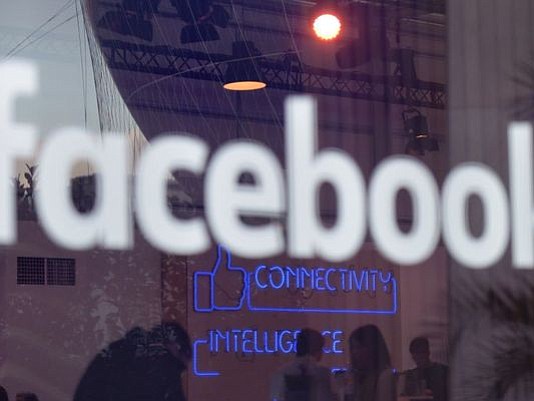What Facebook can learn from the Wells Fargo scandal
CNN/Stylemagazine.com Newswire | 12/20/2018, 8:41 a.m.
Analysis by Matt Egan, CNN Business
(CNN) -- One company said goodbye to its CEO and other top executives, clawed back tens of millions of dollars in pay, installed a new chair and hired a law firm to find out what went wrong.
The other company hired thousands of new security workers, conducted opposition research on George Soros and insisted senior executives are here to stay.
Facebook and Wells Fargo are both trapped in bottomless pits of scandal, with a chorus of negative headlines damaging their once-vaunted brands. But they've reacted to their crises in very different ways. Facebook has, at least until now, largely resisted the broader shakeups that Wells Fargo reluctantly agreed to over the past two years.
Wells Fargo (WFC) took those steps to try to restore confidence in the business and quell a shareholder revolt. The plunge in Facebook's stock -- more than one-third of its value has been erased -- shows it needs to take more forceful steps.
Facebook (FB) shares tumbled another 7% on Wednesday after the latest startling revelation. The New York Times reported that the social network gave companies like Netflix (NFLX), Spotify (SPOT) and Royal Bank of Canada the ability to read, write and delete users' private messages.
"There's been this continuing drip, drip, drip of information," said Bryan Reber, head of the department of advertising and public relations at the University of Georgia's College of Mass Communications. "Either they haven't had all the information -- or they've been withholding it."
'Beginning to hemorrhage'
Facebook has faced an avalanche of scrutiny over how it handles user data and its efforts to combat Russian interference in elections, including the 2016 US presidential election. In April, Facebook said Cambridge Analytica, a political consulting firm, may have harvested information on as many as 87 million users without their knowledge.
And in October, Facebook said that hackers gained access to the phone numbers and email addresses of almost 30 million users.
Now, the Times revealed that Facebook shared a much wider amount of private information with trusted partners than users realized. For instance, Amazon (AMZN) had access to Facebook users' names and contact info through their friends on the social network.
Facebook has reluctantly acknowledged its shortcomings and made vague promises to do better. But the disclosures of mistreating user data keep coming.
"Facebook is beginning to hemorrhage, instead of taking one shot and being able to recover in the ring," said Andy Gilman, president and CEO of CommCore Consulting. "They have to do a lot more to restore user, employee and advertiser confidence."
Underestimating the backlash
In response to the Times investigation, Facebook said in a statement that its partners "don't get to ignore people's privacy settings." Steve Satterfield, Facebook's director of privacy and public policy, said that these partners are unable to use information for independent purposes.
Still, Facebook acknowledged that it's "got work to do to regain people's trust."
Just like Wells Fargo, Facebook badly underestimated the backlash it would face, including from politicians on both sides of the aisle. And both companies failed to own up to the scale of the problem.
Not only did Wells Fargo employees open millions of fake accounts, but it charged thousands of customers for auto insurance they didn't want and mortgage fees they didn't deserve. And Wells Fargo blamed a glitch for causing the wrongful foreclosure of hundreds of struggling homeowners.
Wells Fargo (WFC) initially minimized the millions of fake bank and credit card accounts as wrongdoing by bad actors. It only later admitted the existence of widespread cultural problem. Wells Fargo has continued to publicly show contrition as new wrongdoing emerged.
One critical difference between Wells Fargo and Facebook: The bank was accused of abusing employees, not just customers. And Wells Fargo's shady sales tactics were incentivized by top management. The bank long relied on wildly unrealistic sales goals that it didn't scrap until after coming under enormous pressure.
Facebook also has a major advantage that Wells Fargo certainly does not: the network effect. As the world's largest social media company, Facebook has a large -- though not insurmountable -- moat around it business.
"I can take my loan business somewhere else. But it's harder for me to have the same network of interaction that I have on Facebook," said Reber. "People are still going to post picture of their grandkids on Facebook."
Will Zuck hire a chairman?
Still, Zuckerberg could draw a few lessons from the Wells Fargo experience.
For starters, Facebook's independent directors could hire a well-respected law firm to conduct a deep investigation. The findings may be painful, as Wells Fargo found out when its independent investigation turned up red flags that were missed as early as 2004. But such a probe could help restore the shaken confidence of shareholders and advertisers.
After initially refusing, Wells Fargo also made changes to its C-Suite. Longtime Chairman and CEO John Stumpf departed, clearing the way for current boss Tim Sloan. And Wells Fargo later hired former Federal Reserve governor Elizabeth Duke to be its chairwoman.
Zuckerberg, Facebook's leading shareholder, has resisted growing calls for him to step aside as chairman. When asked if he'd do so, Zuckerberg told CNN last month "that's not the plan." And Zuckerberg voiced strong support for his No. 2, Sheryl Sandberg, despite criticism she has faced.
Zuckerberg has great say here. The Facebook founder has the majority voting power in the company.
Still, Reber suggested that it's possible Zuckerberg gets pressured to temporarily step away. Alternatively, he said Facebook could hire a well-respected outsider to clean up the company and provide robust oversight.
"Find a name-brand person with integrity to buttress what the company is doing," said Gilman.




